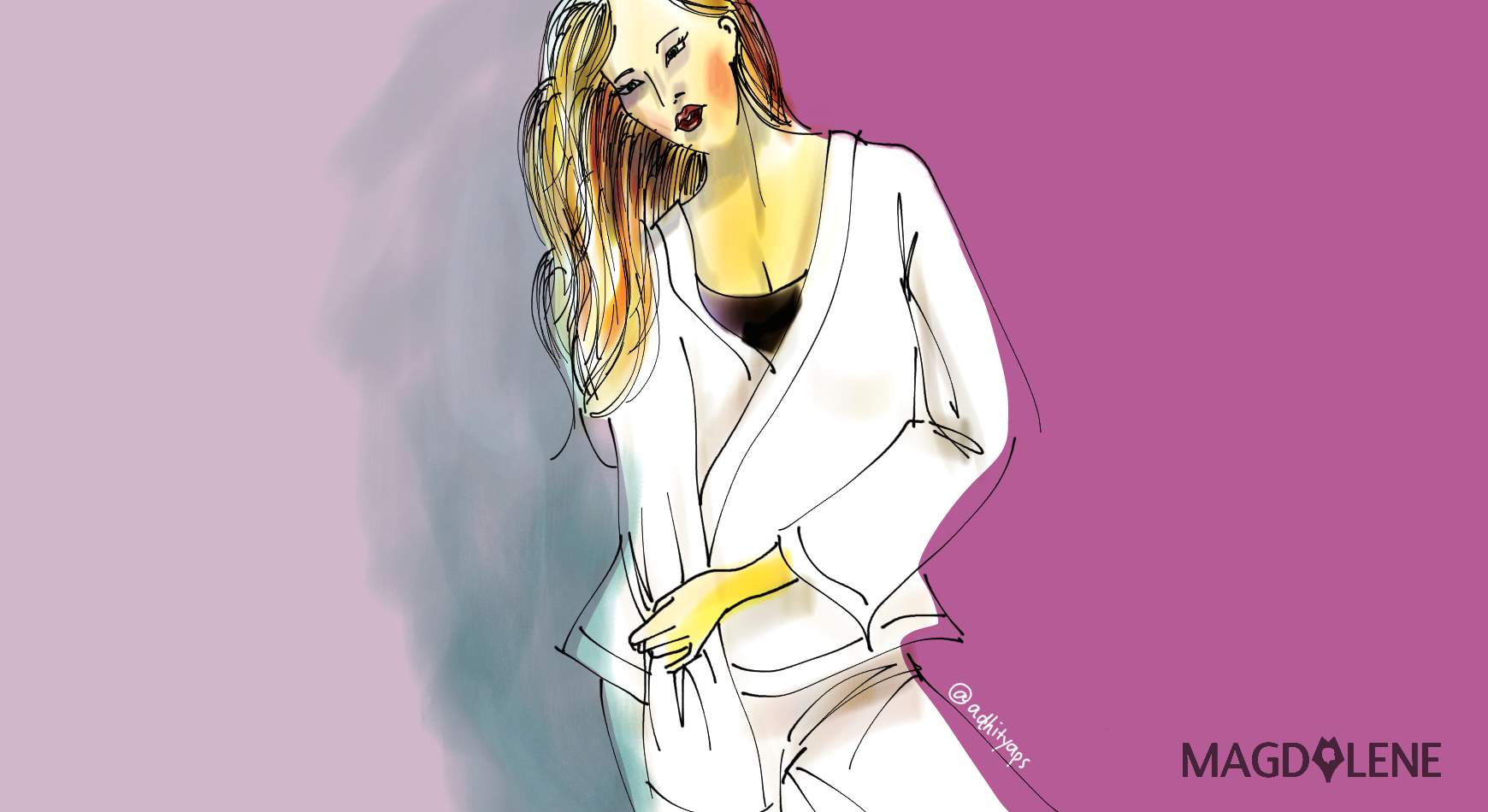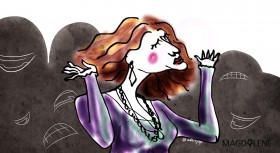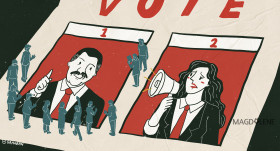In response to Novy Astria’s published article “I Love My Bones, So Stop Judging My Skinny Body” on Magdalene, I want to say: Yes, Novy, you are right for – and have all the right to be – loving your bones and your skinny body. You have fought through bullying and have gained self-esteem! Good for you. Happy for you.
Still, I’ve got to call you out on some things, though.
By the time my friends sent me Novy Astria’s tweets responding to my critique, she had already blocked me, so they sent me screenshots. Novy tweeted a picture of my reply and wrote that if someone had something to say about her article, they should instead submit their own. Perhaps I should.
In one of Novy’s tweets, she claims to feel sad that this call-out culture happens among women. “Sedihnya sesama perempuan pula,” she wrote. So before I start, I specifically want to exclude men’s experience from this narrative, because I want all of us to focus on women’s.
Novy’s article began with “I was born to be skinny”. As I read it, I thought of where this would lead to with this already problematic opening statement. That’s like saying “I was born to be a man/white/rich/able-bodied/cisgender/straight” and so on. Dear Magdalene sisters, when you hear some man says “I was born to be a man!” like that, what would pop in your head? Exactly, that’s what I thought, “chill with that privilege!”
But why is her statement problematic? Because it tells us the writer did acknowledge that some girls were not born skinny and yet she only went on to talk about being thin, that thin people can’t help it but have fast metabolism and not be fat no matter how much they eat… She made it sound like it’s some kind of a struggle. No, Sis, that’s thin privilege.
I don’t deny that every woman has self-esteem issues, body issues, and internalized misogyny. We were raised to fit a standard, constantly taught to hate our bodies, to cover it up or to show it off, to sexualize it then desexualize it, to objectify it then not objectify it, but then see it as just a vessel, or as Novy described it, a “casing”. It’s okay and understandable to be confused of what to do with our bodies.
I am skinny! And with shame I admit I had those days when I would say things like “I have fast metabolism” and “I eat whatever but my body stays this way” (It has come to my awareness that those two are the go-to answers for thin people to reply to comments about their bodies). But as I learned more and read more, I also noticed how those comments had very minimal impact in my life. Does it offend, damage, and hurt me and my self-esteem? Yes. But does it oppress me? No.
Mind the difference between a hurtful personal experience and systemic oppression. As women, we ought to know where the line lies. I may get discriminated because of my womanhood, but never my thinness. Not at work environment, not at home, not at public spaces, not in hospitals. Not in ads and health posters, not in pop culture, not in diet and gym culture, not in fashion and food culture.
Skinny people romanticize body positivity movements and the power of self-love, as if body issues could easily be solved by having self-love. But the most known and socially accepted body-posi campaigns are anti-fat. “Yes fat and curvy girls are beautiful! But you know… not too fat because that’s not healthy.” These body-posi campaigns only allow thin girls to have some self-love and are never fat-positive.
Novy mentioned how she got irritated when being told she looked sick. My dear thin sisters, every time someone tells you that you look sick, please take a moment to think about how the entire capitalist industry, be it fashion or food, have succeeded in fake-rationalizing the idea that all fat people, do not look sick, but are sick.
But how about skinny people who have eating disorders!!
How about fat people who have eating disorders? The fact that we immediately think of thin and only thin people when we talk about bulimia, anorexia, and whatnot is anti-fat. We tend to assume the only eating disorder a fat person could have is the simple act of… eating. So when Novy wrote on her article that “we can enjoy any food and never have a problem with weight”, not only is she being insensitive towards people with eating disorders, she also justifies that having or gaining “weight” is a problem.
I write this article for thin women like me who are still busy being loud from feeling personally attacked, when every day fat women are systemically oppressed and constantly demonized under capitalism. Fat politics had always been overlooked and brushed aside, as if it’s non-existent. It has never occurred to me as something so significantly important until not long ago because, like Novy, I always had the luxury of being thin.
However, I try my best to be an angry feminist who demand inclusivity from other feminists. Of course I am angry at women who are more privileged than me and the rest. But I should accumulate the same amount of anger for those who are less privileged than me and the rest. So if you are a thin woman, especially a self-proclaimed feminist and anti-capitalist, please educate yourself about fat politics. Feminism is rich, it grows as you grow from learning it, so you have to keep up.
I recently read an article on self.com by @fyeahmfabello, a thin woman, titled “Skinny Shaming is Not The Same as Fat Phobia” and gained some enlightenment in terms of how I, as a thin woman, could bring up this issue. The answer is it starts with reminding other thin people.
So this is me dedicating the last paragraph of that article to Novy Astria as a reminder: “Fellow thin people, and especially fellow thin people who have stories to tell about the ways in which our bodies have been attacked, I implore you: First, let’s listen.”
@cryingbrutally rarely tweets, but when she does, she gets blocked. She retweets relatable gay memes but also threads about feminism, gender issues, and sometimes horoscopes. The once infamous tweet "So take your medicine, bitch!" was directed at her.








Comments